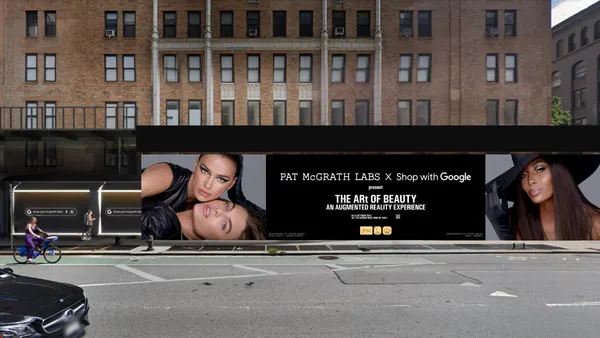Dive Brief:
-
Growing unease around the spread of COVID-19, a disease caused by a member of the coronavirus family, is already keeping people from public spaces and thinning store traffic, according to a report last week from Coresight Research. Some 27.5% of U.S. respondents told Coresight that they're avoiding public areas at least to some extent, and 58% plan to if the outbreak worsens here, Coresight found.
-
Of those who have altered their routines, more than 40% say they are "avoiding or limiting visits to shopping centers/malls" and more than 30% are avoiding stores in general, according to the report, which was emailed to Retail Dive.
-
Shopping centers and malls are the third most likely to be shunned, just behind public transportation and international travel, Coresight said. For those most likely to change their daily habits if the situation gets worse, avoiding malls becomes their first priority, with 74.6% expecting to limit such visits. Other shopping, like grocery shopping, is less vulnerable, "although over half of avoiders could steer clear of, or reduce their visits to, retail stores," Coresight said.
Dive Insight:
It makes sense that consumers who are worried about what appears to be a global epidemic would avoid gathering in public spaces with large crowds, and in the U.S., that's making malls particularly vulnerable.
Traditional malls already face declining traffic, and, with reports that the outbreak is escalating in the U.S. making headlines in the past few days, that is set to worsen, according to Coresight researchers. While they didn't find age to be much of a factor, older shoppers are the most likely to stay away, according to the report. Among those already taking precautions, for example, over half of those over age 60 say they're avoiding malls, compared to just over a third of those ages 18-29.
"This may prove some consolation to many brick-and-mortar retailers, who will be more reliant on big-basket, family-lifestage shoppers (such as in grocery and essentials) or freer-spending younger consumers (such as in fashion)," Coresight said.
This research suggests a boon to e-commerce, which allows consumers to find what they need or want without traveling to a store (something that has bedeviled retailers for two decades now, even in the best of times). But consumer sentiment more generally is also taking a hit from concerns around the spreading disease, according to Wells Fargo Securities economists.
A Wells Fargo Securities survey that ended Feb. 25 reflected better-than-expected consumer confidence throughout the month, and 58% of consumers reported improving finances last month, according to Wells Fargo's Economics Group. Overall, just 8% of consumers surveyed by the Wells Fargo economists mentioned the coronavirus.
But that rose to 20% in the final two days of their research, according to a Feb. 28 note emailed to Retail Dive. That could worsen this month as the stock market continues to react negatively to ongoing news reports around the disease. "Depending on the virus' spread and equity market reaction ... there is significant risk that virus fears dampen sentiment," Wells Fargo Senior Economist Tim Quinlan wrote. "Consumers are sensitive to big stock market moves, and the recent ~14% selloff in equity markets is likely to manifest itself in the March survey."













